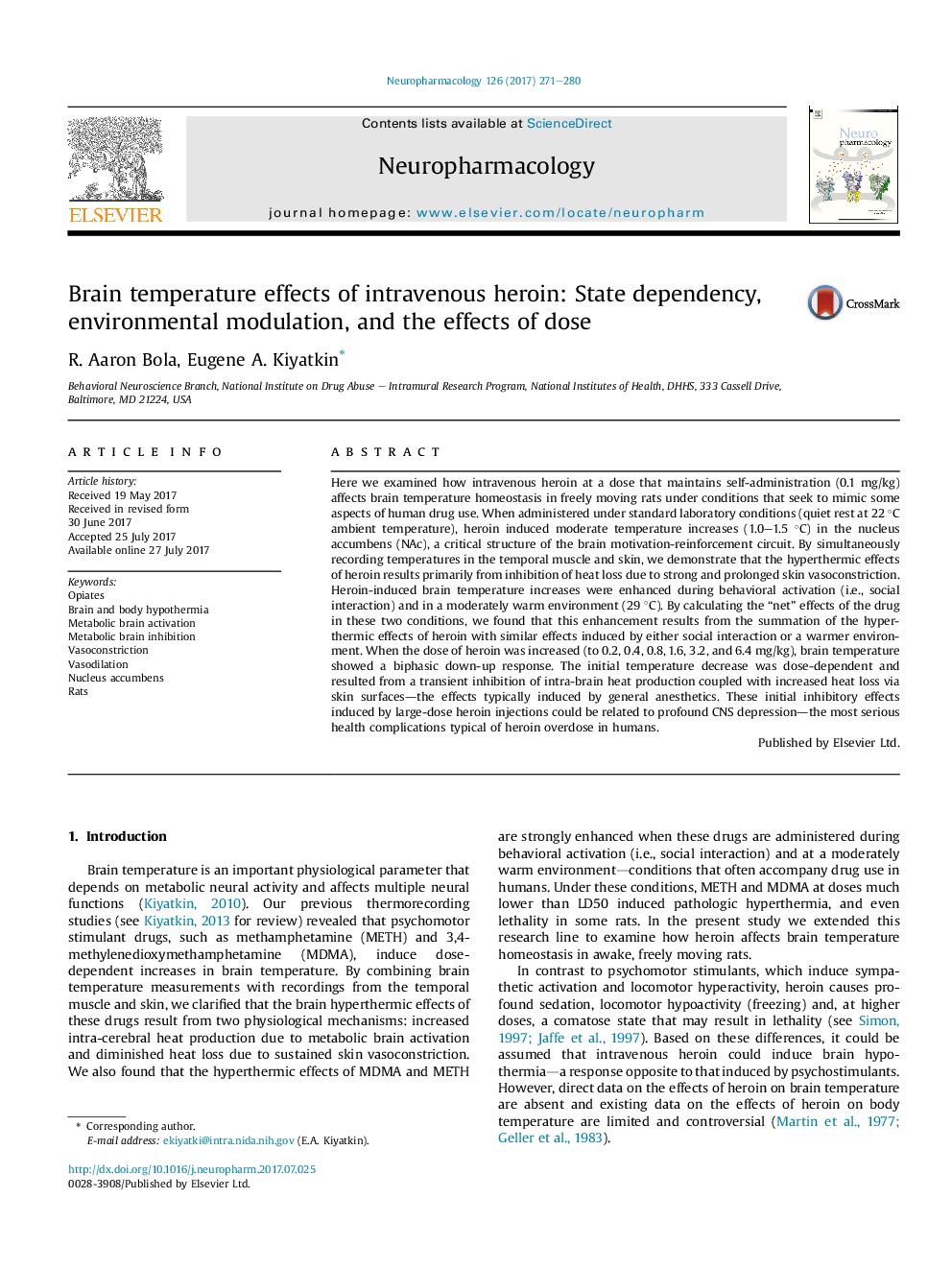| Article ID | Journal | Published Year | Pages | File Type |
|---|---|---|---|---|
| 5548725 | Neuropharmacology | 2017 | 10 Pages |
â¢Iv heroin at low, self-administering doses moderately increases brain temperature.â¢Brain hyperthermic effects result primarily from peripheral vasoconstriction.â¢Brain hyperthermia is potentiated during social interaction.â¢Brain hyperthermia is potentiated at warm ambient temperatures.â¢At higher doses, heroin induces a biphasic, down-up brain temperature response.
Here we examined how intravenous heroin at a dose that maintains self-administration (0.1 mg/kg) affects brain temperature homeostasis in freely moving rats under conditions that seek to mimic some aspects of human drug use. When administered under standard laboratory conditions (quiet rest at 22 °C ambient temperature), heroin induced moderate temperature increases (1.0-1.5 °C) in the nucleus accumbens (NAc), a critical structure of the brain motivation-reinforcement circuit. By simultaneously recording temperatures in the temporal muscle and skin, we demonstrate that the hyperthermic effects of heroin results primarily from inhibition of heat loss due to strong and prolonged skin vasoconstriction. Heroin-induced brain temperature increases were enhanced during behavioral activation (i.e., social interaction) and in a moderately warm environment (29 °C). By calculating the “net” effects of the drug in these two conditions, we found that this enhancement results from the summation of the hyperthermic effects of heroin with similar effects induced by either social interaction or a warmer environment. When the dose of heroin was increased (to 0.2, 0.4, 0.8, 1.6, 3.2, and 6.4 mg/kg), brain temperature showed a biphasic down-up response. The initial temperature decrease was dose-dependent and resulted from a transient inhibition of intra-brain heat production coupled with increased heat loss via skin surfaces-the effects typically induced by general anesthetics. These initial inhibitory effects induced by large-dose heroin injections could be related to profound CNS depression-the most serious health complications typical of heroin overdose in humans.
Graphical abstractDownload high-res image (227KB)Download full-size image
